




placename:- Skinburness
placename:- Skinburness
also see:-
Holmes, T V: : On the Destruction of Skinburness by the Sea, about the Year 1305: TCWAAS: vol.6: pp.121-Whelan:: History of Cumberland::: p.241
placename:- Skinburnenesse
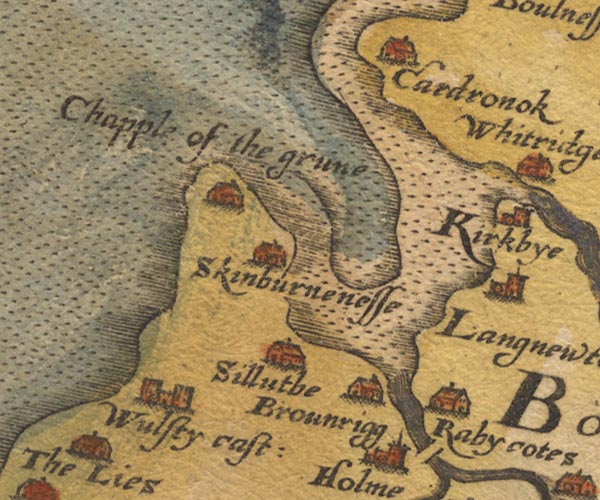
Sax9NY15.jpg
Building, symbol for a hamlet, which may or may not have a nucleus. "Skinburnenesse"
item:- private collection : 2
Image © see bottom of page
placename:- Skinburness
courtesy of the National Library of Scotland
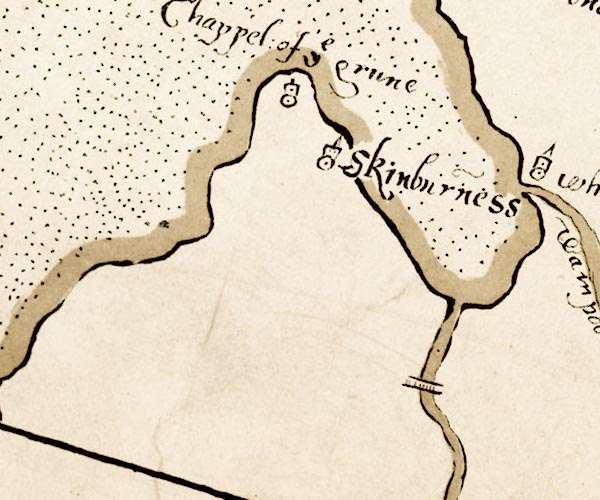
M048NY15.jpg
"Skinburness"
circle, tower
item:- National Library of Scotland : MS6113 f.267
Image © National Library of Scotland
placename:- Skinburness
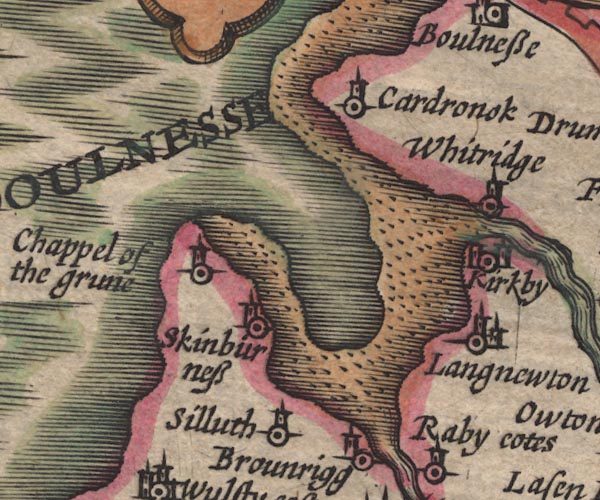
SP11NY15.jpg
"Skinburness"
circle, tower
item:- private collection : 16
Image © see bottom of page
placename:- Skinburness
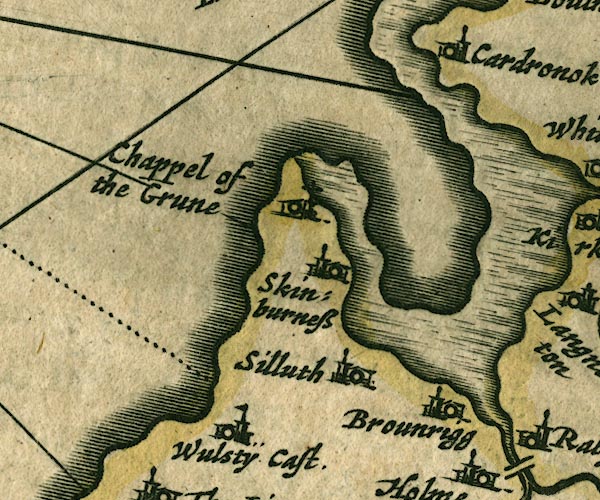
JAN3NY15.jpg
"Skinburness"
Buildings and tower.
item:- JandMN : 88
Image © see bottom of page
placename:- Skinburnes
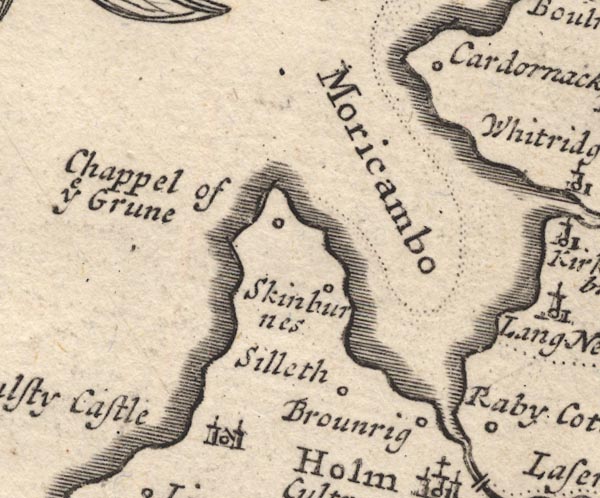
MD12NY15.jpg
"Skinburnes"
Circle.
item:- JandMN : 90
Image © see bottom of page
placename:- Skinburn Naze
item:- smuggling
 goto source
goto sourceGentleman's Magazine 1748 p.291
 click to enlarge
click to enlargeG748E04.jpg
"... There has been an old castle at the cote of Skinburn-naze, probably to guard the bay [Moricambe] ..."
placename:- Skinburns
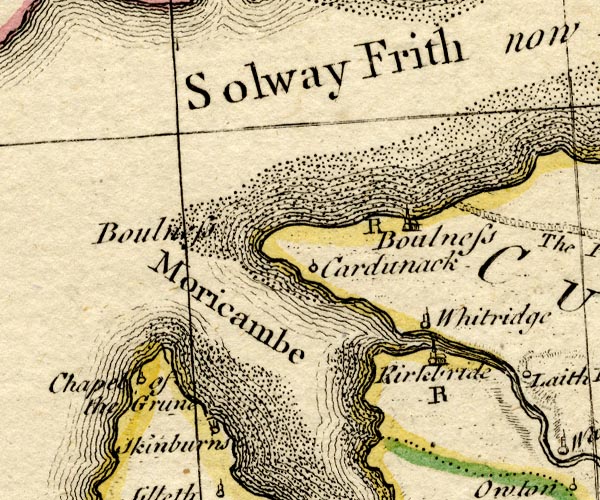
BO18NY15.jpg
"Skinburns"
circle, tower
item:- Armitt Library : 2008.14.10
Image © see bottom of page
placename:- Skinburness
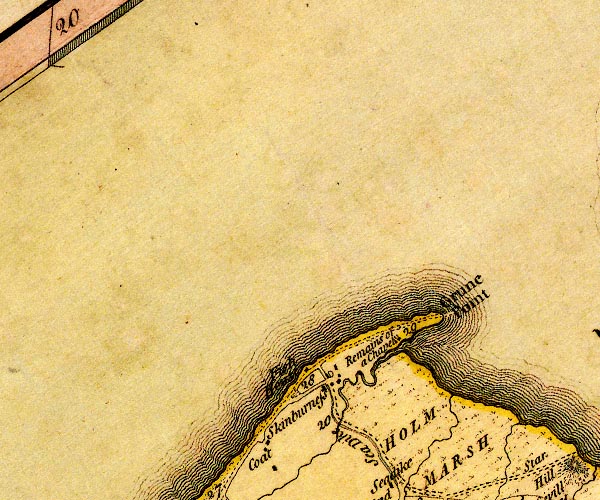
D4NY15NW.jpg
"Skinburness"
block or blocks, labelled in lowercase; a hamlet or just a house
item:- Carlisle Library : Map 2
Image © Carlisle Library
placename:- Skinburness
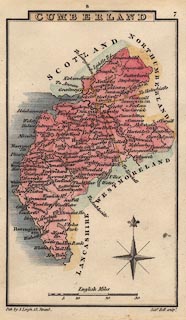 click to enlarge
click to enlargeHA14.jpg
"Skinburness"
circle, italic lowercase text; settlement
item:- JandMN : 91
Image © see bottom of page
placename:- Skinburness
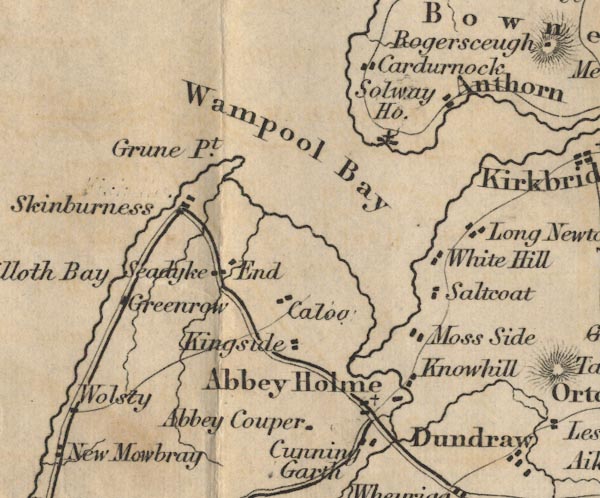
FD02NY15.jpg
"Skinburness"
item:- JandMN : 100.1
Image © see bottom of page
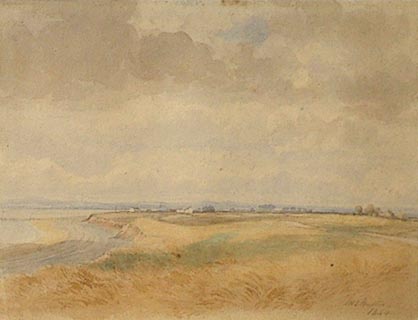 click to enlarge
click to enlargePR1351.jpg
View of coastline, Solway and Skinburness in the distance.
signed at bottom right:- "M E Nutter 1844"
item:- Tullie House Museum : 1999.803.1
Image © Tullie House Museum
placename:- Skinburness
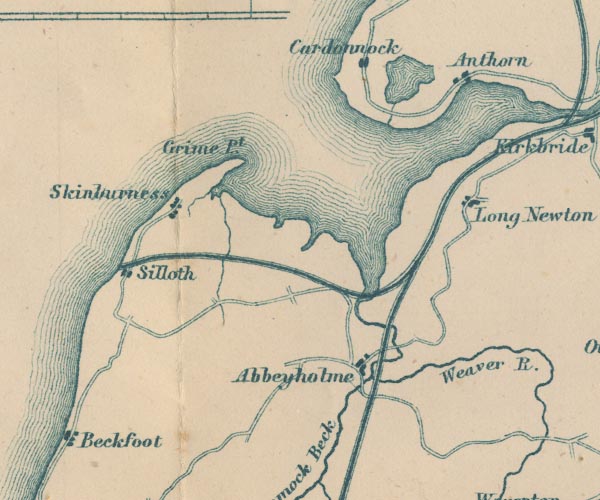
GAR2NY15.jpg
"Skinburness"
blocks, settlement
item:- JandMN : 82.1
Image © see bottom of page
 goto source
goto sourceGentleman's Magazine 1866 part 2 p.641 "INSCRIBED ROMAN ALTAR FOUND NEAR SKINBURNESS."
"... MR. URBAN, - I have read with much interest in your October number, bearing particularly on the inscribed Roman altar which I lately picked up on the sea-shore between Silloth and Skinburness. The finding of this relic confirms, I think, Dr. Bruce's statement referred to at page 34 of his second edition of "The Roman Wall," viz., "A military way ran along the coast from this station (Moresby, near Whitehaven), by way of Maryport, to the extremity of the wall at Bowness.""
"I also think it very probable the Romans used the creek or harbour at Skinburness. In confirmation of this, the following extract from the second volume of Nicolson and Burn's "History of Westmorland and Cumberland," p.117, would almost lead to the infernce that the town and harbour of Skinburness existed in the time of the Romans:-"
""In the year 1301, Bishop Hatton being informed that the inhabitants of the village or town near the port of Skinburness were at a great distance from all manner of Divine service, grants a power to the abbot and convent of Holm Cultram to erect a church there which should be endowed with all manner of tithes and enjoy all parochial rights. The abbot and convent to have the power of advowson, and the bishop of Carlisle and his successors all ordinary jurisdiction.""
"The town of Skinburness was at this time not only privileged with a market, but seems also to have been the chief place for the king's magazines in these parts for supplying the armies then employed against the Scots. But the case was most miserably altered very soon after. For in 1305, we find it thus mentioned in the parliament records:-"
""At the petition of the abbot, requesting that whereas he had paid a fine of 100 marks to the king for a fair and market to be had in Skinburness, and now that town, together with the way leading to it, is carried away by the sea, the king would grant that he may have such fair and market at his town of Kirkeby Johan instead of the other place aforesaid, and that his charter upon this may be renewed. It is answered, Let the first charter be annulled, and then let him have a like charter in the place as he desireth. ... And for the same reason, as it seemeth, the church was also removed to Kirkeby Johan or Newton Arlosh.""
"So much for the interest which the finding of a portion of an inscribed Roman altar near Skinburness has already led to. - I am, &c."
"CHARLES WILKINSON."
"Bank House, Kendal,"
"Oct. 16, 1866."
item:- inscription, roman; roman inscription; roman altar
 goto source
goto sourceGentleman's Magazine 1866 part 2 p.470 "... ..."
"Cumberland. - A portion of an inscribed Roman altar has recently been discovered by Mr. Wilkinson of Kendal. It was lying amongst boulder stones on the sea-shore, to the south of a small haven called Skinburness, on the Cumberland coast. It reads:"
"MATRIBV.
PARVITI.
VAC.IM ? ...
... ..."
"which Dr. Bruce reads, no doubt correctly, Matribus Parcis, etc."
"Inscriptions to the Parcae were heretofore so rarely found in this country, that Horsley does not appear to give a single example. Yet Dr. Bruce,for the third edition of his "Roman Wall," has collected no less than three, including the above. ..."
"... ..."
"... In a private letter Dr. Bruce writes: "In the second edition of my book on the Wall, p.347, I say:- 'A military way ran along the coast from this station (Moresby, near Whitehaven), by way of Maryport, to the extremity of the Wall at Bowness.' This altar is confirmatory of my statement. I have no doubt that the Romans used the creek or harbour of Skinburness. in the 13th century, Skinburness was a considerable market-town (founded, I have little doubt, upon Roman remains); but in 1301, by a great irruption of the"
 goto source
goto sourceGentleman's Magazine 1866 part 2 p.471 "sea, the town was destroyed, and never after attained to its former prosperity. The reason of the altar's turning up just now is this: A new harbour has been formed at Silloth, a little to the south of Skinburness; and its piers have caused the sea to scour the shore between the two places more thoroughly than before. By this means the sand has been washed away, and the boulders below exposed: hence the discovery of the altar!"
item:- market
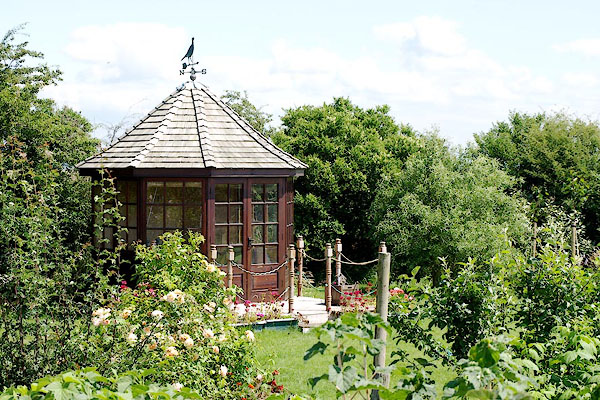
BRB10.jpg Summer house.
(taken 10.7.2009)
 |
NY12145567 Cote Bank (Silloth-on-Solway) |
 |
NY12795598 Marr (Silloth-on-Solway) |
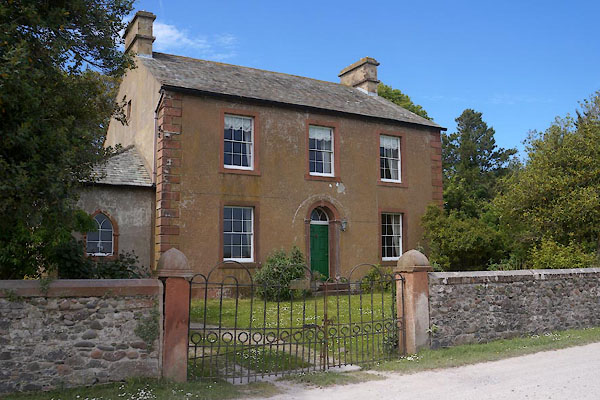 |
NY12815593 Marsh House (Silloth-on-Solway) L |
 |
NY12165564 Rye Hills (Silloth-on-Solway) |
 |
NY1456 Skinburness Creek river |
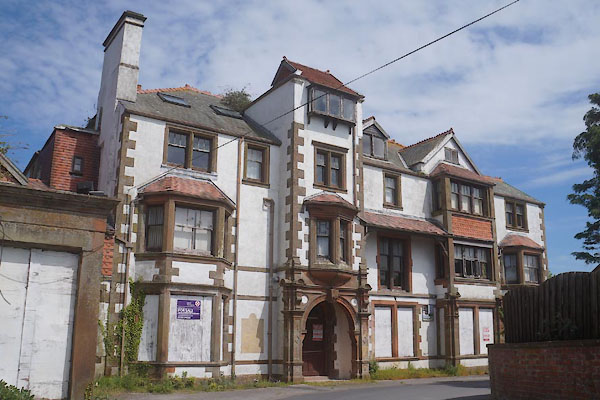 |
NY12745595 Skinburness Hotel (Silloth-on-Solway) |
 |
NY14005580 Skinburness Marsh (Holme Abbey / Holme St Cuthbert / Holme Low) |
 |
NY1255 Skinburness to Keswick Canal (Silloth-on-Solway) proposed |
 |
NY12445602 Skinburnessbank (Silloth-on-Solway) |
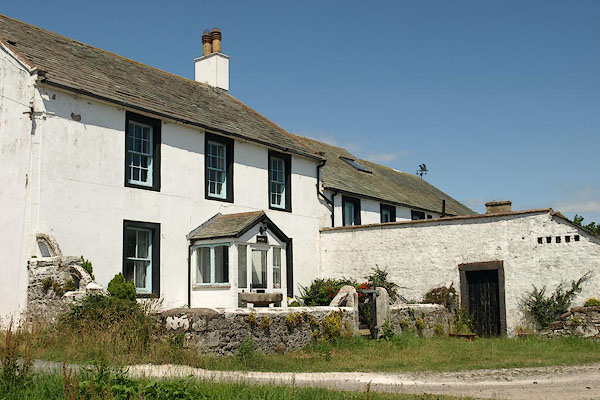 |
NY12775587 Whiteways (Silloth-on-Solway) |
